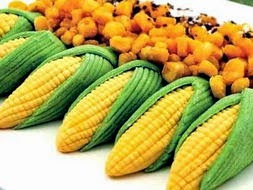.jpg) |
| Benefits of tomato for patients with kidney disease |
Benefits of tomato for patients with kidney disease
Preventing cardiovascular disease: tomato has abundant lycopene, which has well antioxidation. This function of tomato can prevent the accumulation of lipid polymer in vessel wall, which is in favor of preventing angiosclerosis and angiemphraxis, and that can reduce the risk of cardiovascular disease greatly. Besides, there is a substance which is called P3 in tomato, which is helpful in preventing the coagulation of blood plate, and that is beneficial to the prevention of thrombus.
Diuresis: there are abundant potassium and alkaline substances in tomato, which are helpful in promoting the excretion of sodium, and that is beneficial to relieve edema and reduce hypertension. As we know, patients with kidney disease often have edema and hypertension, while this benefit is very useful for kidney disease patients.
Promoting digestion: the organic acids in tomato can promote the excretion of gastric juice, which is helpful in the digestion of fat and protein. And these substances can also improve the gastrointestinal function, which is helpful in the recovery of gastrointestinal diseases. Besides, eating tomato is also helpful in preventing and treating constipation.
Kidney disease patients often have gastrointestinal problems, and they often lose appetite. While this function is helpful in improving this aspect.
Other benefits: tomato also has many other benefits to our health. For example, it is very helpful in anti-aging. It is also very beneficial in preventing cancer. Besides, tomato is also helpful in anti-inflammation, replenishing blood, etc.
The tomato’s positive health properties are a result of the antioxidants and beneficial compounds found in the food. AARP.org notes that the main antioxidant in tomatoes is lycopene, which neutralizes harmful free radicals that can damage cells in the body. Tomatoes also contain beta-carotene, folic acid, and vitamins A, C and E. Additionally, tomatoes have exceptionally low energy density, which means a large serving size delivers only a small amount of calories and fat. According to the USDA, a cup of sliced tomatoes has just 30 calories and less than 0.5 g fat.
Considerations
Eating cooked tomatoes and processed tomato products can deliver many of the same health benefits as raw tomatoes, although some enzymes and beneficial compounds are destroyed in the cooking and production processes. If you have specific questions related to tomatoes in your diet, talk them over with your physician or a registered dietitian before making any significant changes to your current eating plan.
Thereby, patients should consult their doctor’s advice before they decide whether they should list tomato into their eating plan. Or you can also contact us if you have any problem, and we must give you answer in time.

.jpg)
.jpg)


